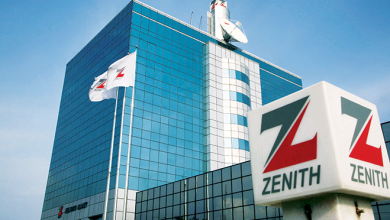10 Renewable Energy Investment Opportunities in Nigeria: Paving the Way for a Sustainable Future
10 Renewable Energy Investment Opportunities in Nigeria: Paving the Way for a Sustainable Future
10 Renewable Energy Investment Opportunities in Nigeria: Paving the Way for a Sustainable Future
Nigeria’s commitment to renewable energy has opened up a plethora of investment opportunities in the country’s growing green energy sector.
As the nation strives to reduce its carbon footprint and harness its abundant renewable resources, investors can play a crucial role in driving sustainable development while enjoying potential financial rewards.
In this blog, we will explore the ten best renewable energy investment opportunities in Nigeria, known for their viability, potential for high returns, and positive impact on the environment.
Additionally, we will address some frequently asked questions (FAQs) to guide you in making informed decisions while considering renewable energy investments.
10 Renewable Energy Investment Opportunities in Nigeria
1. Solar Energy Projects
Solar energy is a prime investment opportunity in Nigeria due to the country’s abundant sunlight. Investing in solar farms, rooftop installations, and off-grid solar solutions can provide clean and reliable electricity for both commercial and residential purposes.
2. Wind Farms
Nigeria’s coastal areas and highlands offer significant wind energy potential. Investing in wind farms can harness the power of the wind to generate electricity and contribute to the country’s renewable energy goals.
3. Hydropower Projects
With numerous rivers and water bodies, Nigeria has excellent potential for small and large-scale hydropower projects. Investing in hydropower can provide a stable and consistent energy supply while utilizing a renewable resource.
4. Biomass and Bioenergy Initiatives
Biomass resources, such as agricultural waste and residues, offer investment opportunities for electricity generation and biofuels production. Investing in bioenergy can promote waste management and reduce reliance on fossil fuels.
5. Waste-to-Energy Ventures
Waste-to-energy projects involve converting organic waste into energy through various processes. Investing in waste-to-energy initiatives not only provides renewable energy but also contributes to sustainable waste management.
6. Geothermal Energy Exploration
Nigeria’s geothermal potential presents an exciting investment opportunity. Geothermal energy, derived from the Earth’s heat, can provide a stable and clean energy source.
7. Energy Storage Solutions
As renewable energy sources are intermittent, investing in energy storage solutions, such as batteries and pumped-storage systems, can enhance grid stability and optimize energy usage.
8. Microgrid Developments
Microgrids are localized energy systems that can operate independently or in conjunction with the main power grid. Investing in microgrids can improve energy access in remote areas and support community-based energy projects.
9. Energy Efficiency Solutions
Energy efficiency investments involve upgrading existing infrastructure to reduce energy consumption. Businesses can invest in energy-efficient technologies to lower operational costs and minimize environmental impact.
10. Electric Vehicle Charging Infrastructure
With the rise of electric vehicles (EVs), investing in EV charging infrastructure can support the transition to cleaner transportation and promote sustainable mobility solutions.
Frequently Asked Questions (FAQs)
Q1: Are renewable energy investments in Nigeria profitable?
A: Yes, renewable energy investments in Nigeria can be profitable due to the country’s vast renewable resources and increasing demand for clean energy.
Q2: How can I invest in renewable energy projects in Nigeria?
A: Investors can participate in renewable energy projects through direct investments, renewable energy funds, or partnerships with established developers.
Q3: What are the risks associated with renewable energy investments?
A: Risks can include regulatory changes, weather-related factors, project delays, and technological challenges. Conducting thorough due diligence and partnering with experienced developers can mitigate risks.
Q4: Can individuals invest in renewable energy projects?
A: Yes, individuals can invest in renewable energy projects either directly or through renewable energy funds and crowdfunding platforms.
Q5: How do renewable energy investments contribute to sustainability?
A: Renewable energy investments help reduce greenhouse gas emissions, combat climate change, and promote a more sustainable energy future.
Conclusion
Renewable energy investments in Nigeria present a unique opportunity for investors to be part of the country’s journey towards sustainability and economic growth. By investing in solar, wind, hydropower, biomass, and other renewable energy projects, investors can not only reap financial rewards but also contribute to Nigeria’s energy security and environmental conservation.





